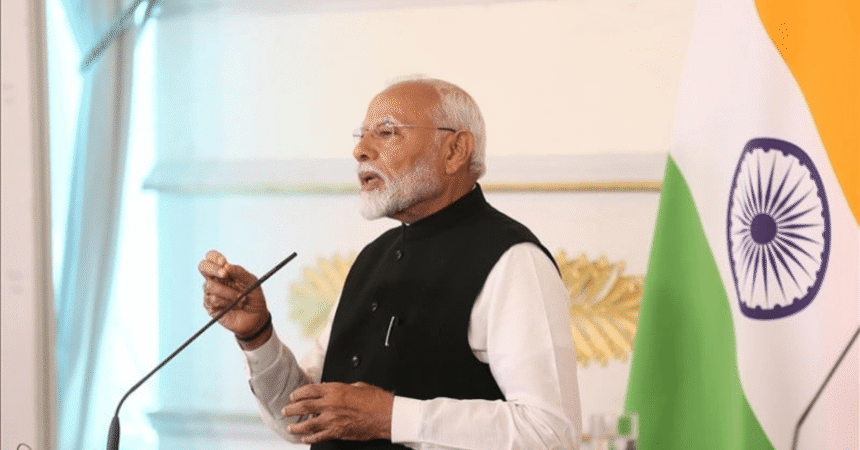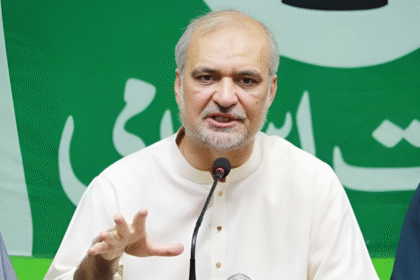Indian Prime Minister Narendra Modi’s recent message for Eid Milad-un-Nabi has sparked considerable discussion, especially given the political and social context surrounding his administration. The message, posted on X (formerly Twitter), conveys Modi’s best wishes for the Islamic festival, stating: “Eid Mubarak! Best wishes on the occasion of Milad-un-Nabi. May harmony and togetherness always prevail. Let there be joy and prosperity all around.” This greeting, which aims to celebrate the birth of Prophet Muhammad (PBUH), comes amid ongoing debates about Modi’s policies and his administration’s approach to religious and communal issues in India.
Understanding Eid Milad-un-Nabi
Eid Milad-un-Nabi, also known as Mawlid or Milad, is an important Islamic festival commemorating the birth of Prophet Muhammad (PBUH). Celebrated on the 12th day of Rabiul Awwal, the third month in the Islamic lunar calendar, the festival is marked by various events and activities that honor the life and teachings of the Prophet.
Muslims worldwide celebrate this occasion with processions, gatherings, recitations of the Prophet’s life, and charitable activities. The emphasis of the festival is on spreading peace, compassion, and unity, reflecting the core values promoted by the Prophet Muhammad (PBUH). For Muslims, Eid Milad-un-Nabi is not only a time of joyous celebration but also an opportunity to reflect on the teachings of the Prophet and their relevance in today’s world.
Modi’s Message: An Appeal for Unity
Prime Minister Modi’s message for Eid Milad-un-Nabi emphasizes the themes of harmony and prosperity. By stating, “May harmony and togetherness always prevail,” Modi is invoking the spirit of the festival, which seeks to foster peace and mutual respect among people. This sentiment is particularly significant given the current socio-political climate in India.
Modi’s appeal for unity is consistent with the festival’s values, which focus on celebrating the Prophet’s life and teachings. The Prime Minister’s message can be seen as an attempt to promote a sense of communal cohesion and to encourage positive interactions among India’s diverse population. His choice of words reflects an intention to bridge divides and to create a positive atmosphere during the celebrations.
The Context of Modi’s Administration
Despite the positive tone of Modi’s message, his administration has faced considerable scrutiny and controversy over its handling of communal and religious issues. Modi’s tenure as Prime Minister has been marked by debates about his approach to secularism and minority rights in India.
One of the most contentious aspects of Modi’s political career is the 2002 Gujarat riots, which occurred when he was the Chief Minister of Gujarat. The riots resulted in significant violence and loss of life, primarily affecting the Muslim community. Modi has faced allegations of not doing enough to prevent the violence and of failing to protect the rights of minority communities. Although he has consistently denied any wrongdoing, the events have continued to impact his reputation and raise concerns about his commitment to secularism.
In addition to the Gujarat riots, Modi’s administration has been criticized for several policies perceived as discriminatory against minority communities. The Citizenship Amendment Act (CAA) and the National Register of Citizens (NRC) in Assam have been particularly controversial. The CAA, which provides a pathway to citizenship for non-Muslim refugees from neighboring countries, has been criticized for excluding Muslims and exacerbating religious divisions. The NRC, intended to identify illegal immigrants, has been accused of disproportionately targeting Muslims and creating fear and uncertainty within the community.
Controversies and Criticisms
The controversies surrounding Modi’s administration have led to significant debates about his leadership and its impact on India’s secular framework. Critics argue that his policies and rhetoric contribute to a climate of intolerance and polarization, undermining the secular principles enshrined in the Indian constitution.
The BJP, the political party Modi represents, has been associated with Hindu nationalist ideologies, which some argue conflict with the pluralistic nature of Indian society. The party’s policies and public statements have often been seen as promoting Hindu majoritarianism, leading to concerns about the treatment of minority communities.
Modi’s administration has also faced criticism for its handling of various incidents of communal violence and its approach to religious minorities. Critics argue that the government’s responses to such incidents have often been inadequate, contributing to a sense of insecurity and marginalization among minority communities.
The Impact of Modi’s Message
Modi’s message for Eid Milad-un-Nabi is likely to be interpreted in various ways. For supporters of the Prime Minister, the message may be seen as a positive gesture and an indication of his commitment to promoting communal harmony. Supporters might view the greeting as a genuine effort to bridge divides and foster a sense of unity during the festival.
However, critics may view the message with skepticism, considering the broader context of Modi’s policies and the controversies surrounding his administration. The message of harmony may be seen as inconsistent with the actions and policies that have contributed to religious and communal tensions in India. The reception of Modi’s message will be influenced by ongoing discussions about secularism, minority rights, and the role of government in promoting communal harmony.
Public Reaction and Media Coverage
The reaction to Modi’s Eid Milad-un-Nabi message is likely to vary depending on political and social perspectives. Media coverage of the message will reflect these divergent views, with some outlets highlighting the positive aspects of the message and others questioning its sincerity given the political context.
Supporters of Modi may focus on the message’s positive sentiments and its alignment with the values of Eid Milad-un-Nabi. They may view the message as a reflection of the Prime Minister’s intention to promote peace and unity during a significant religious festival.
Critics, on the other hand, may emphasize the perceived disconnect between Modi’s public statements and the policies enacted under his administration. They may argue that the message of harmony does not fully address the concerns and grievances of minority communities in India. Media outlets critical of Modi may use the message to highlight broader issues related to communal tensions and the treatment of minorities.
Government and Policy Responses
In response to the controversies surrounding his administration, Modi’s government may need to address concerns about its approach to communal and religious issues. Key areas of focus could include:
- Reaffirming Commitment to Secularism: The government should reaffirm its commitment to the secular principles enshrined in the Indian constitution. This involves ensuring that policies and actions promote equal rights and protections for all citizens, regardless of their religious or ethnic background.
- Addressing Minority Concerns: The government should engage in meaningful dialogue with minority communities and address their concerns. This includes taking concrete steps to address issues related to discrimination, violence, and marginalization.
- Promoting Interfaith Dialogue: Encouraging interfaith dialogue and cooperation can help build bridges between different communities and promote understanding and respect. Government initiatives and programs that support interfaith engagement can contribute to a more inclusive and harmonious society.
- Ensuring Accountability: Addressing past incidents of communal violence and ensuring accountability for those responsible is crucial for rebuilding trust and confidence among minority communities. The government should take steps to investigate and address any failures in protecting the rights and safety of all citizens.
Conclusion
Indian Prime Minister Narendra Modi’s Eid Milad-un-Nabi message, which calls for harmony and prosperity, comes at a time of significant debate and scrutiny regarding his administration’s approach to communal and religious issues. While the message aligns with the values of the festival and promotes a positive atmosphere, it also raises questions about the broader context of Modi’s policies and their impact on minority communities.
As India celebrates Eid Milad-un-Nabi, the message serves as a reminder of the need for unity and peace, reflecting the spirit of the occasion. However, the reception of Modi’s message will be influenced by ongoing discussions about secularism, minority rights, and the role of government in fostering communal harmony. The effectiveness of Modi’s call for unity will depend on how well it resonates with the diverse and complex socio-political landscape of India.
#EidMiladunNabi #NarendraModi #CommunalHarmony #India #Secularism #ReligiousFestivals #ModiMessage #MinorityRights #PoliticalControversies #InterfaithDialogue #EidMubarak







